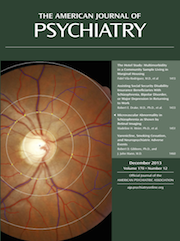Where All and Nothing Is About Mental Health: Beyond Posttraumatic Stress Disorder for Displaced Syrians
“No words could describe, Doctor, what I went through during the days I spent in Syria….” Those are the words that I hear every time I face a displaced Syrian in Lebanon who has witnessed and survived major traumatic war events. As an automatic reflex, I assure these patients that they can take their time to describe everything that seems to be important to mention and that could have negatively influenced their mental well-being. I always do so, knowing that I am armed and equipped with my up-to-date knowledge of psychiatric disorders and their management, as well as my previous experience in managing patients who have witnessed and survived trauma- and stress-related events. To my ever-growing shock, here’s what patients recount to me:
We lived in a small but crowded region that was considered to be a buffer zone between the antagonists. For a few months, my family and I struggled successfully against joblessness, diseases, and the lack of basic and necessary materials such as bread and water. One day, right after the decision was made to invade our region, I left the eight members of my family at home and went out to have a walk with a friend in a nearby neighborhood. A few minutes later, I heard two consecutive tremendous explosions. I went with my friend to check whether we could offer any help to the wounded. When we arrived at our street, I saw my friend picking up a human hand from the ground. From the minute I recognized the ring of my mother on one of the fingers of that hand, nothing in this life has been the same. I will spare you, Doctor, the details of how I packed the body parts of my family members who were all killed by the bombing that day, and would like to ask you to give me something that could help me sleep at night.
My 35-year-old brother, the father of three children, had nothing to do with all the conflict that has been going on during the last few years. They kidnapped him for no reason while he was coming back home after an ordinary workday. A couple of weeks after his kidnapping, I received, in a message sent to my cell phone, a picture of his chopped-off head…. Please, Doctor, all that I ask for is to get the picture of his chopped-off head out of my mind….
I was kidnapped and tortured only because I wanted to cross to an opposite region to help my sister get home safely. During those 3 weeks of capture, I had five near-death experiences that I don’t think I will be able to forget in my lifetime. Although my kidnappers realized in the first few days that they would not obtain any important information from me, they kept me in their custody, most probably because they wanted to feed their hatred for the sons of my region and religion. They used me as a punching bag, they played Russian roulette over my head, and they made a few fake executions just to mess with my mind. All these experiences were still not anywhere near the most staggering trauma I had. I had been kept in a basement where all the executions took place. In that room, human blood covered all the walls and formed stagnant pools on the ground. On one of those days in which I was wasting away from hunger and thirst, I remember that I woke up from a disturbed sleep to find my face in one of those pools. I unconsciously started drinking from that blood in order to sooth my thirst. From the moment I got freed until now, I haven’t been able to get rid of the feeling of guilt and shame of what I did in that basement.
Looking at this endless list of horrible stories from a psychiatrist’s perspective, I see only patients suffering from what my profession calls posttraumatic stress disorder. It is a disorder with well-described symptoms and therapeutic options. Looking at this same list from a human being’s perspective, I only see in the looks and attitudes of those patients—as I empathically explain to them their disorder, prescribe a few pills, and orient them to psychotherapy—something that is beyond what contemporary evidence-based medicine can describe scientifically. In every one of these patients, I see intense, irreversible mistrust and a lack of belief in every principle or rule that is supposed to control our relationships with each other. I see question marks regarding the meaning of their whole existence as well as the meanings behind the most important concepts that seemed unquestionable to them in the past, such as religion, politics, work, family, and finally, last but not least, health. These patients manifest symptoms that justify the wide array of treatment modalities I offer to them, but I am left with a terrible feeling that this management is somehow wanting. All that has been shattered in these patients’ lives cannot be mended by the small treatment that we can offer.



